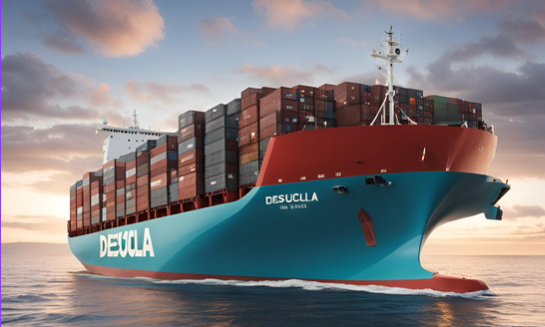Desucla: Your Trusted Partner for EU Customs Imports
When importing goods into the European Union (EU), navigating customs regulations is a crucial step in ensuring the smooth flow of your products. One of the key decisions you must make is whether to choose direct or indirect representation for your customs procedures. Understanding the difference between these two options can help you make the best choice for your business.
What is Direct Representation?
In direct representation, the customs agent (or representative) acts on behalf of the importer, but in the name of the importer. This means that the importer is fully responsible for all customs obligations, including compliance with regulations, payment of duties, and any penalties or legal consequences arising from non-compliance. The customs agent’s role is limited to executing the importer’s instructions and facilitating the customs clearance process.
What is Indirect Representation?
In contrast, indirect representation involves the customs agent acting not only on behalf of the importer but also in their own name. This creates a shared responsibility between the importer and the representative. The customs agent becomes jointly liable with the importer for ensuring compliance with all customs regulations, payment of duties, and any associated legal obligations.
Key Differences Between Direct and Indirect Representation
- Liability and Responsibility
- Direct Representation: The importer assumes full liability for all customs-related matters. The customs agent acts purely as an executor of the importer’s instructions.
- Indirect Representation: Liability is shared between the importer and the representative. The representative takes on a more proactive role, sharing responsibility for customs compliance and legal obligations.
- Risk Management
- Direct Representation: The importer bears all the risks associated with customs clearance, including potential fines, penalties, or disputes.
- Indirect Representation: Risk is mitigated by shared responsibility. The representative’s involvement reduces the importer’s exposure to potential liabilities.
- Flexibility and Market Access
- Direct Representation: Best suited for businesses with a strong understanding of EU customs regulations or a presence within the EU.
- Indirect Representation: Ideal for businesses looking to enter the EU market without establishing a physical presence, as the representative can handle all customs procedures on their behalf.
- Expertise and Compliance
- Direct Representation: The importer needs to have significant knowledge of customs regulations or rely heavily on the customs agent’s advice.
- Indirect Representation: The representative, like Desucla, offers expert guidance and takes a more active role in ensuring compliance with all regulatory requirements.
Why Choose Desucla as Your Indirect Representative?
At Desucla, we specialize in providing comprehensive customs services as your Indirect Representative. Our deep understanding of EU customs regulations, coupled with our commitment to compliance and risk management, makes us the ideal partner for your import operations.
By choosing Desucla, you gain the advantage of shared liability, expert support, and a streamlined process that ensures your goods move smoothly through customs. Whether you’re new to the EU market or looking to optimize your existing import operations, Desucla is here to support your success.
Let Desucla Handle Your Customs Needs
With Desucla as your Indirect Representative, you can focus on what you do best—growing your business. We’ll take care of the complexities of EU customs, ensuring your products reach their destination efficiently and compliantly. Contact us today to learn more about how we can support your customs import needs into the European Union.


